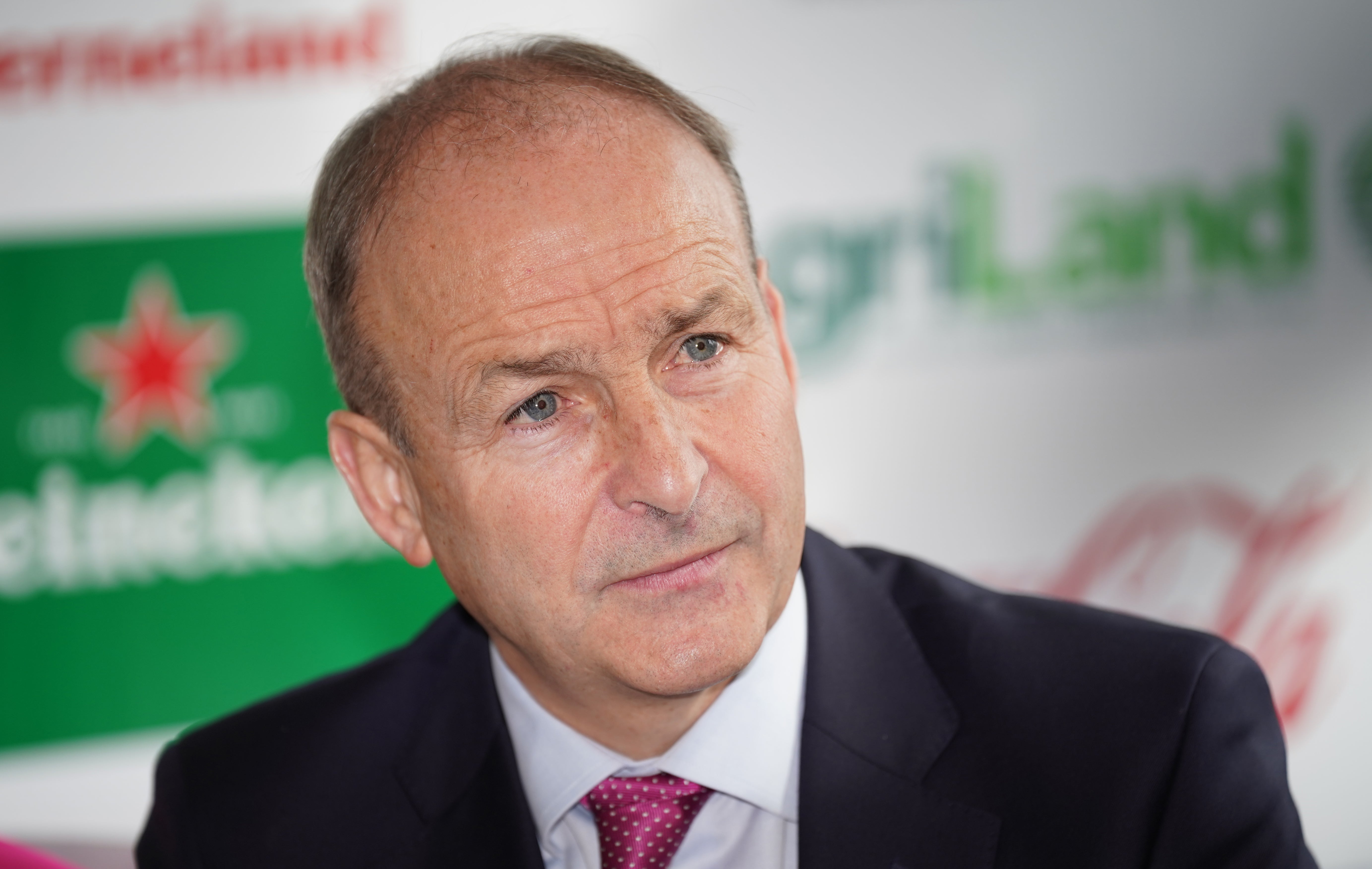Heightened nuclear risks from Russian aggression ‘unprecedented’, says Irish PM
Micheal Martin also described a ‘time of crisis’, urging the UN to act on food security and climate change.

Your support helps us to tell the story
From reproductive rights to climate change to Big Tech, The Independent is on the ground when the story is developing. Whether it's investigating the financials of Elon Musk's pro-Trump PAC or producing our latest documentary, 'The A Word', which shines a light on the American women fighting for reproductive rights, we know how important it is to parse out the facts from the messaging.
At such a critical moment in US history, we need reporters on the ground. Your donation allows us to keep sending journalists to speak to both sides of the story.
The Independent is trusted by Americans across the entire political spectrum. And unlike many other quality news outlets, we choose not to lock Americans out of our reporting and analysis with paywalls. We believe quality journalism should be available to everyone, paid for by those who can afford it.
Your support makes all the difference.The heightened nuclear risks from Russia’s aggression against Ukraine are unprecedented, the Irish premier has warned the United Nations.
Micheal Martin referred to potential threats to nuclear safety and security resulting from military activity near civilian nuclear facilities in Ukraine as the Russian invasion rages on.
Addressing the UN General Assembly in New York on Thursday, the Taoiseach said the Nuclear Non-Proliferation Treaty must remain an essential element of international peace and security, adding the urgency of its full implementation “cannot be overstated”.
He described Russia’s invasion of Ukraine as carrying “dark echoes of our continent’s past”.
“We face an expansionist power brutally invading and occupying a peaceful neighbour,” Mr Martin said.
“We faced this many times in Europe in the 20th century. We did not think we would face it again in the 21st century.
“But this is not just a European issue. Not just a concern for ‘the West’.
“All states, and particularly small countries such as my own, should fear a world where might equals right, where the strong can bully the weak; where sovereignty and territorial integrity can be blatantly violated; and where the UN Charter – the charter that all of us in this Assembly have faithfully put our trust in – can be flouted with impunity.”
Mr Martin referred to his visit to Ukraine in July, hearing first-hand accounts from civilians, and the uncovering of mass civilian graves in Bucha and Izium.
“We have seen the targeting of nuclear facilities and of civilian infrastructure,” he said.
“And now we see President Putin plan sham referenda in eastern Ukraine, aimed at forcibly changing Ukraine’s borders, in clear violation of the UN Charter.
“We have to name what we are seeing. These actions, taken collectively, show Russia behaving as a rogue state.”
Combined with the impact of climate change, and of conflict, severe drought and other extreme weather events, we face a crisis that needs urgent action
Mr Martin also referred to the impact of the invasion reaching as far as the Horn of Africa in terms of food insecurity.
“Some of the countries which have been worst-affected by the current food insecurity crisis are those most reliant on imports of wheat from Russia and Ukraine,” he said.
“Combined with the impact of climate change, and of conflict, severe drought and other extreme weather events, we face a crisis that needs urgent action.”
Mr Martin described a “time of crisis”, referring to the threat of widespread global hunger, food insecurity, devastating impacts of climate change and “blatant disregard for international law” and the UN Charter.
He went on to say that the gathering has the tools and systems to address these issues, and called for political will to implement treaties and charters that are agreed.
“When much of the progress that we were making towards achieving the Sustainable Development Goals has stalled or gone into reverse, as we grapple with the continued effects of the Covid pandemic,” he said.
“We cannot continue to shelve or postpone or ignore our existential global challenges.”